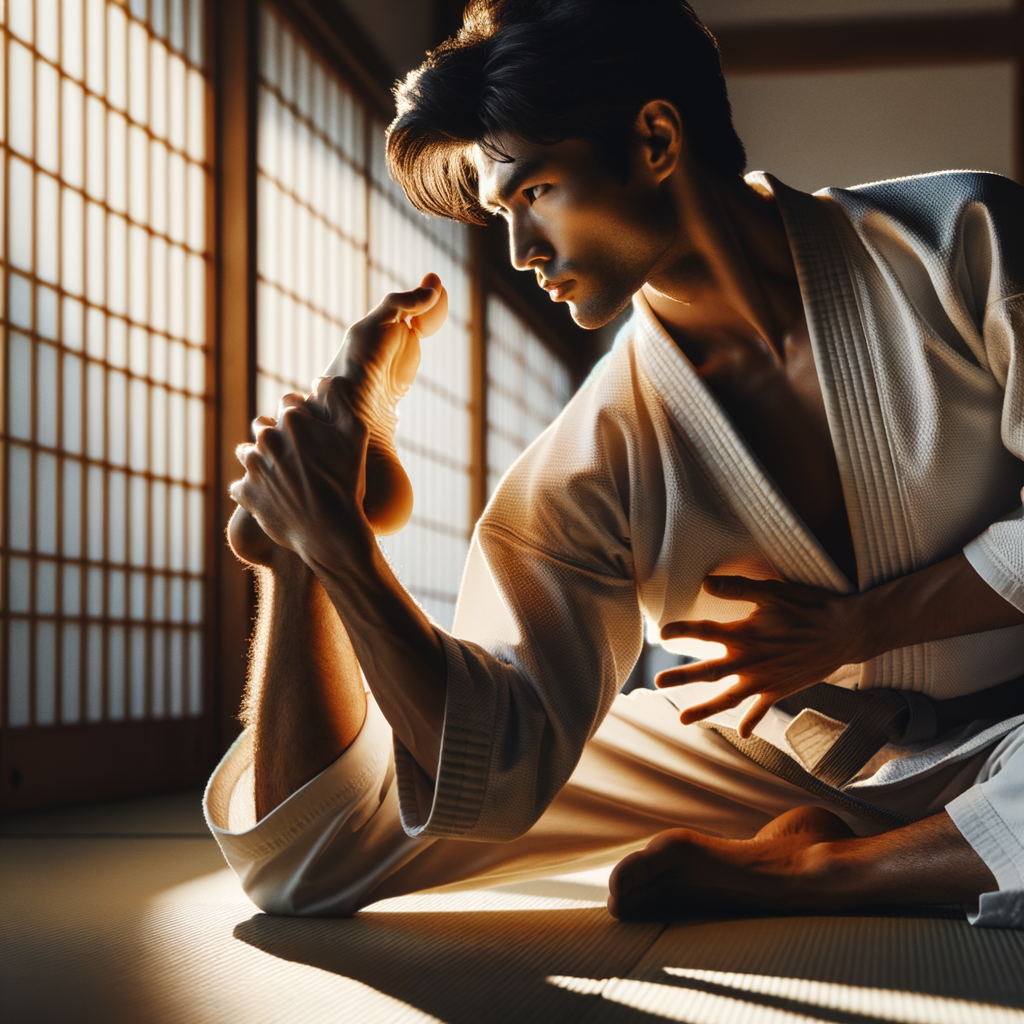
Understanding Karate Techniques
When it comes to martial arts, Karate is one of the most recognized and respected forms worldwide. Its techniques are not only about physical strength but also about mental discipline and focus. In this section, we will delve into the world of Karate, its key techniques, and the importance of mastering these techniques.
- Overview of Karate
- Key Karate Techniques
- Kihon: These are the basic techniques of Karate, including punches, kicks, knee strikes, and defensive movements.
- Kata: These are prearranged sequences of movements that simulate combat situations. They are performed alone and help to develop balance, coordination, and focus.
- Kumite: This is sparring, where two practitioners face each other to apply the techniques learned in Kihon and Kata.
- Importance of Technique Mastery in Karate
Karate, originating from Japan, is a martial art that emphasizes the use of the hands and feet for attack and defense. It is a blend of physical prowess, mental discipline, and spiritual growth. Karate is not just about fighting; it’s about self-improvement, respect, and discipline.
There are several key techniques in Karate that every practitioner needs to learn and master. These include:
Mastery of Karate techniques is crucial for several reasons. First, it allows for effective self-defense. Second, it promotes physical fitness and mental discipline. Lastly, it fosters a sense of respect and humility, as the journey to mastery is a long and challenging one.
In conclusion, understanding and mastering Karate techniques is not just about learning to fight. It’s about self-improvement, discipline, and respect. As the famous Karate master Gichin Funakoshi once said, “The ultimate aim of Karate lies not in victory or defeat, but in the perfection of the character of its participants.”
Adaptability in Martial Arts
In the world of martial arts, adaptability is a key trait that every practitioner must possess. It’s about being flexible and ready to change according to the situation. Let’s delve into why adaptability matters in martial arts.
Why Adaptability Matters
Adaptability in martial arts is not just about physical flexibility. It’s about mental agility too. It’s about how quickly and effectively you can adjust to new situations and challenges. Here are three main areas where adaptability plays a crucial role:
- Adapting to Opponent’s Moves
- Adapting to Changing Situations
- Adapting to Your Own Growth and Progress
Every opponent is different, with unique strengths and weaknesses. Being able to adapt to their moves is crucial. It’s like a game of chess, where you need to think several steps ahead and adjust your strategy based on your opponent’s moves.
In a real-life situation, things can change in a split second. The ability to adapt quickly can mean the difference between winning and losing. It’s about being prepared for the unexpected and being able to react swiftly and effectively.
As you progress in your martial arts journey, your abilities and skills will grow. You’ll need to adapt your techniques and strategies to match your new level of skill. This is a continuous process of learning, adapting, and growing.
In conclusion, adaptability is a vital trait in martial arts. It’s about being flexible, agile, and ready to adjust according to the situation. Whether you’re adapting to your opponent’s moves, changing situations, or your own growth and progress, being adaptable will help you succeed in martial arts.
Case Study: Adaptability in Professional Karate
Let’s delve into two case studies that highlight the importance of adaptability in professional karate. These examples will provide a clear understanding of how adaptability plays a crucial role in achieving success in this martial art.
- Case Study 1: The Unpredictable Opponent
- Case Study 2: The Changing Environment
Our first case study involves a karate professional named John. John was known for his swift and precise moves. However, he faced a unique challenge during a national championship. His opponent was unpredictable and used a variety of techniques that John was not familiar with.
Initially, John struggled to keep up. But he quickly realized that he needed to adapt to his opponent’s unique style. He began to observe his opponent’s moves carefully, predicting his next moves and countering them effectively. This adaptability led John to win the championship, despite the unfamiliar techniques of his opponent.
The second case study focuses on a karate professional named Lisa. Lisa was preparing for an international tournament. However, the tournament was held at a high-altitude location, a condition Lisa was not used to.
Despite the challenging environment, Lisa decided to adapt rather than give up. She arrived at the location weeks in advance to acclimatize herself. She also modified her training routine to suit the high-altitude conditions. Her adaptability not only helped her perform well at the tournament but also earned her a gold medal.
These case studies clearly demonstrate that adaptability is not just about adjusting to an opponent’s moves. It also involves adapting to changing environments and situations. This skill is crucial for anyone aiming for success in professional karate.
| Case Study | Challenge | Adaptation Strategy | Outcome |
|---|---|---|---|
| John (Case Study 1) | Unpredictable opponent | Observing and predicting opponent’s moves | Won the championship |
| Lisa (Case Study 2) | High-altitude conditions | Acclimatization and training modification | Won a gold medal |
As we can see from these case studies, adaptability in professional karate is about being flexible and ready to face any challenge that comes your way. It’s about learning, growing, and turning obstacles into opportunities for success.
Success in Karate
Success in karate is not just about winning fights or earning belts. It’s about personal growth, competitive achievements, and the ability to teach and mentor others. Let’s delve deeper into what success in karate truly means.
Defining Success in Karate
Success in karate can be defined in many ways. It’s not just about the number of matches you win, but also about the progress you make as an individual. Here are some key aspects of success in karate:
- Personal Growth: This involves improving your physical fitness, developing discipline, and learning to control your emotions. Personal growth in karate also means learning to respect others, building self-confidence, and developing a positive attitude.
- Competitive Achievements: Winning competitions and earning belts are certainly important aspects of success in karate. They are a testament to your skills, dedication, and hard work. However, it’s equally important to learn from your defeats and use them as stepping stones to improve.
- Teaching and Mentoring Others: A successful karateka is not just a good learner, but also a good teacher. Teaching and mentoring others not only helps you solidify your own knowledge but also contributes to the growth of the karate community as a whole.
Remember, success in karate is a journey, not a destination. It’s about constantly learning, improving, and striving to be the best version of yourself.
Key Factors for Success in Karate
- Dedication and Consistency: Success in Karate is not achieved overnight. It requires dedication and consistency. Regular practice helps to perfect the techniques and improve performance.
- Quality Training and Coaching: Having a qualified and experienced coach is crucial. They guide you through the correct techniques, provide feedback, and help you improve.
- Physical and Mental Fitness: Karate is a physical activity that requires strength, flexibility, and endurance. But it’s not just about the body. Mental fitness, including focus and resilience, is equally important.
- Adjusting Punches, Kicks, Blocks, and Dodges: Karate involves a lot of movement. Learning to adjust your punches, kicks, blocks, and dodges according to the situation is key to success.
- Changing Training Intensity: As you progress, your training intensity should increase. This helps to build strength and endurance.
- Integrating New Techniques: Karate is a dynamic sport. Always be open to learning and integrating new techniques into your routine.
- Overcoming Plateaus: Progress may slow down at times. But don’t get discouraged. Keep training and you’ll overcome these plateaus.
- Dealing with Injuries: Injuries are part of any sport. Learn to deal with them properly to prevent long-term damage and get back to training as soon as possible.
- Adapting to Different Styles and Opponents: Every opponent is different. Learn to adapt your style to overcome any opponent.
- Adapting Training to Individual Needs and Goals: Everyone is different. Your training should reflect your individual needs and goals.
- How Karate Fosters Success Mindset: Karate teaches discipline, respect, and perseverance. These are all traits of a successful mindset.
- How Success in Karate Translates to Other Areas of Life: The skills and mindset you develop in Karate can help you succeed in other areas of life too.
Now, let’s look at some examples and tips to further illustrate these points.
- Story 1: Consider the story of a famous Karate champion. Despite numerous setbacks, they never gave up and eventually achieved their goal.
- Story 2: Or the story of a beginner who started Karate late in life. With dedication and hard work, they were able to compete at a high level.
- Lesson 1: One important lesson from these stories is the importance of perseverance. No matter the obstacles, keep going.
- Lesson 2: Another lesson is the importance of a positive mindset. Believe in your ability to succeed.
- Technique 1: One effective technique is the front kick. It’s simple but powerful, and can be used in many situations.
- Technique 2: Another useful technique is the reverse punch. It’s a bit more advanced, but very effective when mastered.
- Improvement Tip 1: Practice regularly. The more you practice, the better you’ll get.
- Improvement Tip 2: Don’t neglect your fitness. A strong and flexible body enhances your performance.
- Adaptability Exercise 1: Try sparring with different partners. This will help you adapt to different styles and techniques.
- Adaptability Exercise 2: Practice different scenarios. Imagine different situations and how you would respond.
- Success Habit 1: Set clear goals. Know what you want to achieve and work towards it.
- Success Habit 2: Stay focused. Don’t let distractions derail your progress.
- Example 1: Consider a Karate student who set a goal to earn their black belt. They trained consistently, stayed focused, and eventually achieved their goal.
- Example 2: Or a professional Karate athlete who adapted their training to overcome a strong opponent. They studied their opponent’s style, adjusted their techniques, and won the match.






